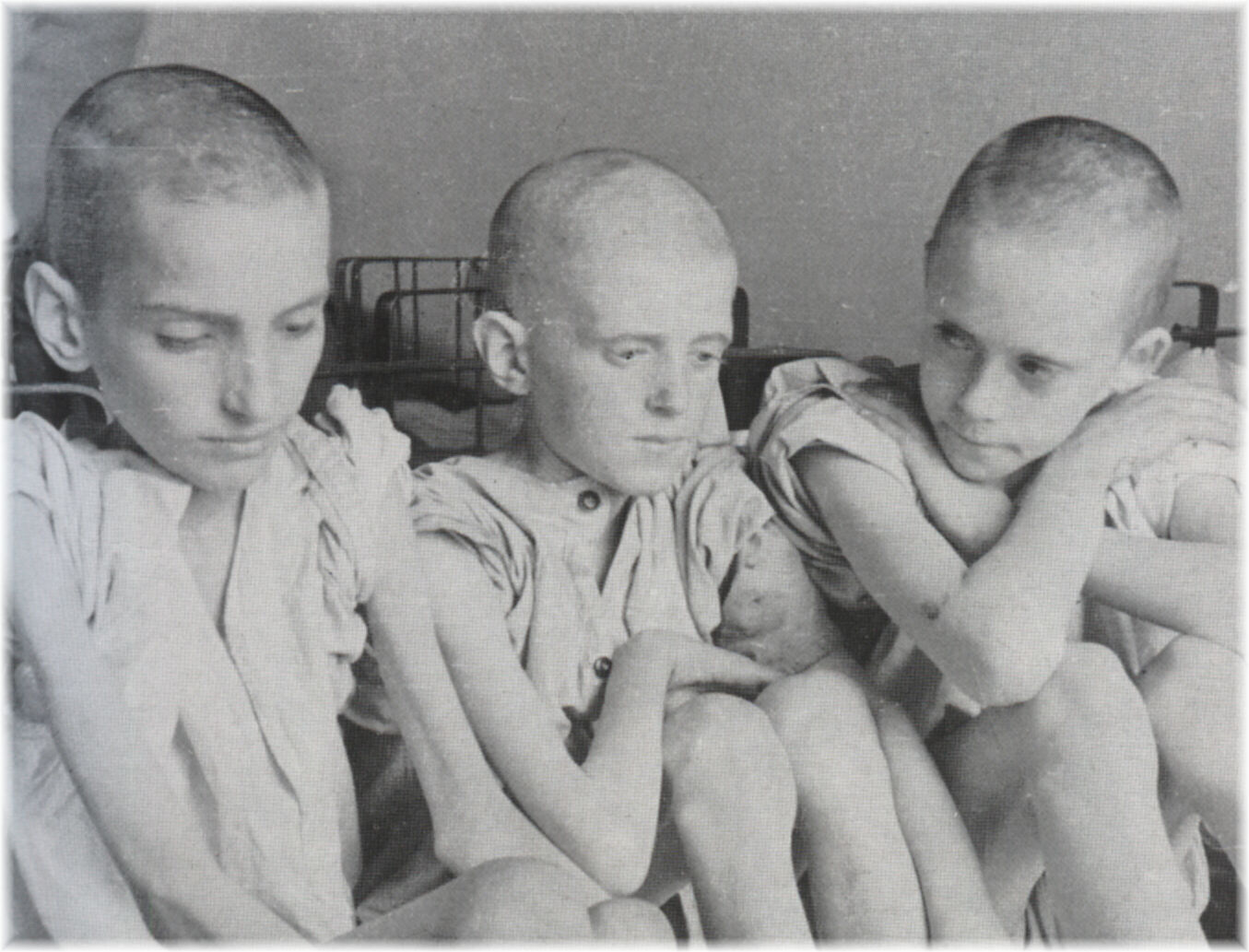Part Two – The USSR and Gulag
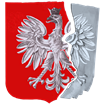
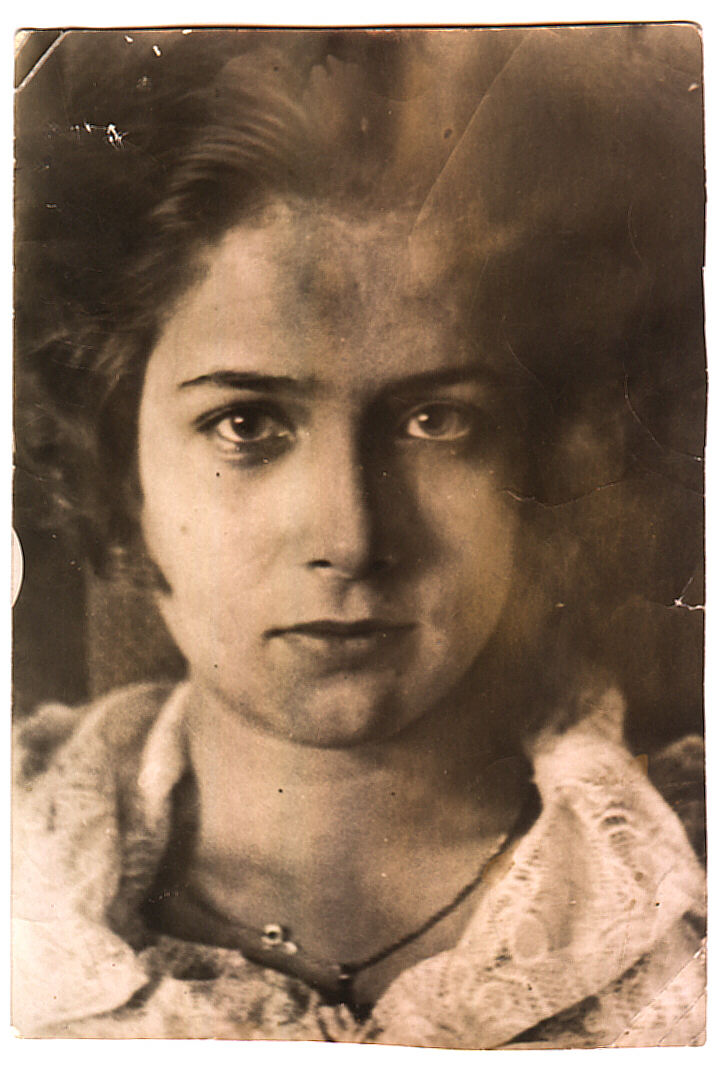
Janina Sulkowska, 1934
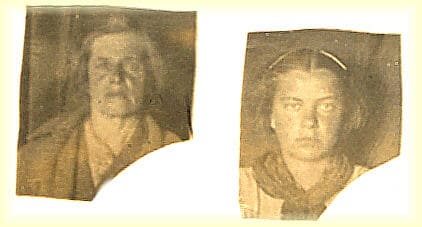
Natalia and Wanda Sulkowska: Life in Kazakhstan was a struggle of life and death
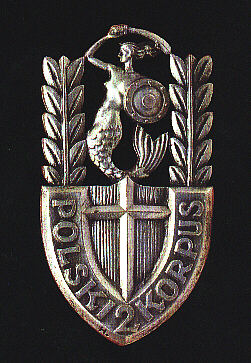
Polish 2nd Corps Insignia
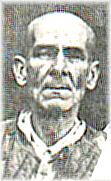
Jan Sulkowski: his teeth were knocked out by the NKVD

Woman's Polish Army uniform, USSR, 1941-1942
A Funeral
I was all set to leave my little “hut beyond the village”–even planning a farewell party for the next day, after which I would leave in the night. But Waria’s sick daughter took a turn for the worse. Every breath seemed to be her last and was accompanied by horrible wheezing, which reduced her mother to screaming fits. I ran to the village to fetch Gabryela, a Pole, who was known for her nursing abilities. She could only tell me that it would be better if the severely underdeveloped baby would not make it. Tamara died that evening.
I postponed my departure and gave Waria some sedative herbs, but she refused to sleep in the same hut with her dead child–we both spent the night outside. At least Waria was confident her child would go to heaven as she’d been secretly christened before her death. Religion had long been banned in the USSR and the local Russian Orthodox priest or “Pop” had been executed (my sister later told me of priests being crucified and left hanging!). But his religious functions were taken over by a local female “Popadia” who maintained a secret church. Religion remained in the Russian heart and soul.
Next morning Waria went to the factory for a coffin, while I prepared Tamara for the funeral. I washed her emaciated body and sewed a little hat and dress from rags. Waria created a horrible scene, cursing the Soviet regime for the death of her child and her wounded husband. They finally gave her a shipping box for a coffin. We laid Tamara on a bed of straw and flowers picked by local Russian girls. The Latvian women sang as we set off with young girls carrying the coffin. On the outskirts of the village a grave had been dug by an old Pole and a crippled Latvian. We said a prayer and buried Tamara. Then we returned to my hut for a feast prepared by the women, which was both a wake for Tamara, and a farewell party for me. Around ten that night the women accompanied me to the outskirts where they hugged and kissed me. Tears flowing down my cheek, I set out for the Polish Army with all my worldly possession tied up in a piece of cloth.
To Gorky and Gifts from the USA
The first business I had in Gorky was an appointment with a hairdresser. I was flattered that the Polish Delegature was concerned about me, but this had had more to do with parasites infesting my hair and scalp, than my neglected looks. Here I also was reunited with Maniuta. A Polish official took me to an upstairs warehouse, packed to the ceiling with clothing. Among the mountains of blankets and clothing were gowns, fur coats, and high-heel shoes! These were American gifts from the Red Cross and Jewish organizations, sent in great amounts to the USSR for Polish refugees (much of which would be stolen by the Soviets). I shook my head at these impractical “bourgeois” fashions, but soon I was trying on Florsheim Shoes of Genuine Lizard and a Maiden Form Bra–and trying to understand the lives of the women who’d donated their clothes. Finally I chose a beige skirt, a purple jacket, comfortable shoes, undergarments…and a bathing suit. Later in a pocket, I discovered a ticket from a movie theatre in Buffalo, New York, which conjured up images of innocence and laughter in my eyes which had seen so much pain and suffering.
I felt like a movie star as I sauntered down the streets of Gorky, with its shoeless peasant girls and unwashed soldiers who stared at this decadent lady. I returned to the Delegature where I was shown an urgent cable from the Polish Embassy searching for Stefan Czarnocki, released from a labour camp, and last seen getting off the train in Gorky. But he never returned to continue his trip–and I would search for him, but he never would be found. I was given papers and money for the long trip to Guzar, and spent a pleasant evening with friends during which I was complimented that I was beginning to look like my own daughter! The woman then retired to sleep in the hospital quarters.
At midnight banging on the door and a woman’s voice in Polish: “It’s us from Kirov!” We opened the gate as clothing and food was expected from Kirov–and four male figures pushed their way in. The NKVD! We were assembled in the dining area as our personal papers were torn apart–I was positive they were searching for me.
The NKVD turned the place upside-down and sealed the doors of the office and warehouse, before leaving. The Soviet government had withdrawn diplomatic status from Polish organizations and staff, closing embassies and making arrests. I decided to leave immediately to warn the Polish government in Kujbyshev, which along with the Soviet government had been evacuated as German forces neared Moscow. Maniuta and a small group saw me off at the station–and they would be arrested shortly.
In Kujbyshev I notified the embassy about the situation in Gorky, and learned of similair raids. Poles across the USSR were being prevented from reaching the army, including Polish children who were escaping from Soviet orphanages and schools where they were being molded into Soviet citizens. Poles of Ukrainian, Jewish or Byelorussian background were automatically declared Soviet citizens, and refused entry into the Polish Army.
My Family is Alive!
While at the embassy I submitted the names of Poles I had met in the Gulag, including those that had perished. I also searched the official list of survivors for the names of family and friends. Was it a futile hope? But my mother and sister were among those alive! They were in Kazakhstan living in squalid conditions, and were hoping to join the Polish Army, which my brother Czeslaw had already done. I was beside myself with joy. And then a man from Bukhara mentioned the name of patient he knew at a hospital in Bukhara. That name was Jan Sulkowski, my father! Immediately I made plans to be reunited with him. Colonel Rudnicki issued me with bread, lard and Bovril for the long trip ahead. And then I had my first “meal” in several years: juicy cutlets served in fine china on a white table cloth! I had difficulty handling the fine cutlery and maintaining decorum–but the meal was out of this world. I was ordered to stop in Bukhara and personally warn the Polish delegates to immediately head for the Polish Army.
To the Polish Army
My trip to Guzar took a relatively short ten days and somehow I was able to avoid getting lost or disappearing–the victims of robbers or the NKVD. Trains were reserved for military use, and civilians were forced to wait at stations for days and even weeks. Many died of starvation or exposure. But I was able to complete my journey with relative ease thanks to good luck and the help of people–almost the work of a guardian angel.
On one my first train transfers, I discovered that the sanitary baths were broken down–and without a certificate of sanobrobotki, attesting to personal hygiene, one couldn’t travel. My heart sank as I looked around the crowded station. What’s worse, a woman in a Soviet uniform recognized me as a stranger by my clothing, and stopped me. She was a Jew whose mother was from Lwow, and she handed over both our tickets for validation to the soldiers. I just made it to the train.
Two days later in Tashkent the sanitary baths were also down and the station was even more chaotic. I beheld several Polish soldiers accompanying three women who turned out to be the family of a Polish Colonel and a doctor, trying to reach the army. We plied the Soviet soldiers with vodka and my lard and Bovril–and our papers were quickly in order. We boarded the train for Bukhara.
For six days I had an upper berth to myself. I left the train only to grab kipiatok, yogurt and baked fish, which was plentiful as we neared the Aral Sea. It was heaven to lie in my berth, watching the endless countryside roll by and being happy. I had freedom and food, my family was alive, and I would soon join Polish Army. If I had arrived in Gorky a day later, the embassy would’ve been already arrested, and there’d be no ticket. There wasn’t a happier person on the entire planet!
Bukhara…and My Father!
Bukhara was in a heat wave as I passed on the order to close the embassy, and for the staff to head for the Polish Army. I also met an orderly at the invalid hospital who confirmed that my father was a patient there. In fact they had become friendly, and he described how my father despaired that I had perished in jail or the concentration camps.
A plan was drawn up on how to prepare Jan Sulkowski for the unexpected arrival of his eldest daughter. I remained in the office while the orderly told my father he’d heard something about me at the embassy. My father harkened to the news. The orderly then came around with news that a letter had arrived at the hospital from his daughter. My father wanted to read it, and the orderly went to fetch it–but came back to announce that a visitor had just arrived. My father was sitting in a big chair wearing a bathrobe and playing solitaire when I entered the ward. He looked very sick. It took several seconds for both of us to admit to our senses what our eyes beheld. My father jumped up, sending the cards flying, and hugged me. We had so much to talk about.
He took me on a tour of the hospital to meet the friends he’d made. The hospital was full of chronically ill patients including children who’d barely survived Soviet genocide: skeletons with suffering eyes unable to cry, teenagers rolled up into fetal positions, and other sights that tore at my heart. The mortality rate was very high. I made a promise that I’d dedicate myself to helping these children. I bade a farewell to my father with the hope our family would become one again, and set out for the Army.
The Polish Army
In Guzar the Polish recruiting board issued me a uniform, and sent me to a camp at Szakhryziabs where I reported to a high official named Jakub Hoffman. I was also re-united with Wanda Krawczak, and there were stories and tears all around. Our underground group knew little of Kuba’s fate–only that he and his family had been taken during the first deportation in February, 1940. And then we lost track of each other and didn’t know who was dead and who was alive. The Hoffman’s were transported by cattle car to Gorky Oblast and used as forced-labor in cutting forests and building a railroad to Kotlas. His son perished in exile. And then in July of 1941 Kuba was arrested by the NKVD and subjected to eight months of interrogations, but was released to serve the Polish government. It was still a mystery how our underground group had been smashed by the
NKVD–it must have been someone close to both of us.
In Shakhryziabs, my home was a tent under an arch built by Tamerlane. Every noon a Polish trumpeter played the famous Polish heynal–just like from the tower of the Mariacki Church in Kraków. And he always broke off at the note when, according to legend, a Tartar arrow pierced his throat. It was a sound that stirred the Polish soul in this distant land.
Death was a common visitor to the Polish camp. Every day there would be fresh bodies to bury–including children who succumb to years of starvation and disease. There was a makeshift hospital with doctors, but little could be done. Polish graveyards sprang up at every camp along the route to the Polish Army with such markers as: “Janek–8 years old” or “Marysia–age uknown.” After a week we began to get ready for evacuation to Persia.
On an August night we marched out of camp for the rail station with a double load in our knapsacks–two sets of uniforms, and things we didn’t want to leave for the despised Soviets. Morning found us at Kitab where Polish soldiers were supervising the loading. The children were ecstatic to see a soldier in a Polish uniform and speaking Polish! I noticed a familiar face under an officer’s cap–and called out his nickname of “Tiutka.” And indeed it was Leon Gladun, my hometown classmate! He had survived the mass executions at Katyn and was now in the Polish Army heading for Persia to join the British. We only talked for a few minutes, not knowing if we’d meet again (and it would years later on my wedding day, that I would share the prophecy of Moses with my new husband–Leon Gladun). Our train rolled through Kagan, Samarkand and Askhbad–to Karsnovodsk on the Caspian Sea.
Krasnovodsk and Escape from the USSR
A sand storm greeted us at Krasnovodsk which resembled Hell. The Kara-Kum desert broiled us in the train, as refineries belched flames and fumes, and the Caspian Sea shimmered with oil spills–and human corpses. An occasional ship wandered into port with wounded Soviet soldiers from the Caucaus Front.
Poles were camped all along the tracks. Everywhere there were starving Polish mothers and children, many lying in makeshift beds awaiting death. The only food available were inadequate rations allotted to the Polish Army, who shared them with civilians. And the local population was not much better off than the refugees.
The evacuations from the USSR to Persia consisted of two phases: one in April and the second in August, 1942, which I was part of. The total number of people transported to Persia was 116,000, of whom 20,000 were children and teenagers. General Anders gave specific orders that all the children be included–even if they had to be carried aboard. Military personnel accounted for some 76,000 people. Still this was only a fraction of the people who had been deported from Poland.
A women was dehydrated, but there was no drinking water. There was only cheap wine and we managed to buy a bottle from a vendor on the beach. We poured a cup for the ailing woman and gently brought it to her parched lips. She gagged at the first sip! The wine had turned into vinegar. We had to leave the poor woman.
A small train took people to the port while others walked. The Soviets supplied tankers and freighters with names like Stalin, Beria and Molotov. At the gangplank the NKVD checked papers. Those not on the list had to remain in this hell–a push from a Soviet soldier would send the victim sobbing down the plank with their little bundle. In some cases people were stricken off the list while families might be split apart. It was like Judgement Day–except that the evil ones were judging the innocent ones. My papers were in order.
We were loaded like sardines in a tin (some ships had 5,000 passengers) and set off across the Caspian Sea for Persia…and British protection. The passengers were mostly women and children, but there was a contingent of Polish soldiers. The ship rolled and heaved with resulting seasickness and diarrhea, compounded by overcrowding, and poor health of the passengers. Those that died were thrown overboard. In one case a nursing mother lost her grip–and her baby tumbled into the sea. The ship couldn’t stop.
Christopher Jacek Gladun was born in 1951 and grew up in Canada to where his family emigrated from England as displaced persons. Sadly, Chris died in Toronto in March 2003. He held a diploma in Journalism from the Niagara College and a BA in Polish Language & Literature from the University of Toronto. Chris also acted as interviewer and researcher for the documentary film “Rescued From Death in Siberia”.
This content is now maintained by the Kresy-Siberia Group, which Chris was a charter member of and which is taking his website and his research work forward.
